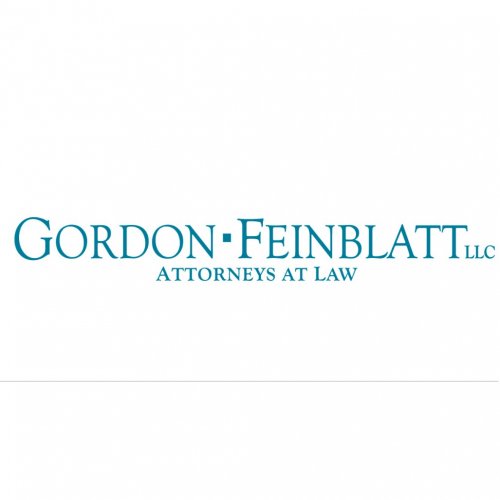Best Bankruptcy Lawyers in Baltimore
Share your needs with us, get contacted by law firms.
Free. Takes 2 min.
List of the best lawyers in Baltimore, United States
About Bankruptcy Law in Baltimore, United States:
Bankruptcy laws in Baltimore, United States provide legal protection and solutions for individuals and businesses unable to repay their debts. It is a legal process that allows debtors to eliminate or restructure their debts under the supervision of the bankruptcy court.
Why You May Need a Lawyer:
While it is possible to file for bankruptcy without an attorney, having a qualified bankruptcy lawyer by your side can greatly benefit you. They can provide guidance, navigate complex legal procedures, protect your rights, and advocate for your best interests. Some common situations where a bankruptcy lawyer can help include:
- Assessing your financial situation and determining whether bankruptcy is the right option for you.
- Guiding you through the bankruptcy process, ensuring all required paperwork is completed accurately and on time.
- Developing a debt management plan or negotiating with creditors to help you achieve the best possible outcome.
- Representing you in court proceedings and handling any legal challenges that may arise.
- Providing expert advice on exemptions, asset protection, and long-term financial planning.
Local Laws Overview:
In Baltimore, United States, bankruptcy cases are primarily governed by federal laws, specifically the U.S. Bankruptcy Code. However, there are certain local laws that may have an impact on bankruptcy proceedings. Some key aspects to be aware of include:
- Exemptions: Maryland has its own set of bankruptcy exemptions that determine what property you can keep during bankruptcy. Consulting with a bankruptcy lawyer can help you understand which exemptions apply to your specific situation.
- Means Test: When filing for Chapter 7 bankruptcy, individuals must pass a means test to determine their eligibility. The means test compares your income to the median income in Maryland and determines if you have enough disposable income to repay debts.
- State-Specific Forms: Maryland has its own bankruptcy forms that need to be used in addition to the standard federal bankruptcy forms. These state-specific forms ensure compliance with local procedures and requirements.
Frequently Asked Questions:
1. What are the different types of bankruptcy?
There are several types of bankruptcy, but the most common for individuals are Chapter 7 and Chapter 13 bankruptcy. Chapter 7 allows for the discharge of most debts, while Chapter 13 involves a repayment plan to repay creditors over a specified period.
2. Will bankruptcy stop creditors from harassing me?
Yes, filing for bankruptcy triggers an automatic stay. This means that creditors must immediately stop their collection efforts, including calls, letters, lawsuits, and wage garnishment.
3. What debts cannot be discharged in bankruptcy?
While bankruptcy can eliminate many types of debts, there are exceptions. Debts such as child support, alimony, certain tax debts, student loans (in most cases), and debts incurred through fraud or illegal activities are generally non-dischargeable.
4. Will bankruptcy ruin my credit forever?
Bankruptcy will have a negative impact on your credit score, but it is not permanent. It stays on your credit report for a certain period (typically 7-10 years), but you can begin rebuilding your credit immediately after the bankruptcy process is completed.
5. Can I keep any property if I file for bankruptcy?
Bankruptcy exemptions allow you to keep certain property, such as your primary residence, a vehicle, personal belongings, and retirement accounts. The specific exemptions available to you will depend on the laws of Baltimore, United States and your individual circumstances.
Additional Resources:
For further information and resources on bankruptcy in Baltimore, United States, consider exploring the following:
- Baltimore Bankruptcy Court website
- Local legal aid organizations that offer free or low-cost bankruptcy assistance
- The American Bankruptcy Institute, which provides educational resources and research
Next Steps:
If you find yourself in need of legal assistance for bankruptcy in Baltimore, United States, it is highly recommended to consult with an experienced bankruptcy lawyer. They can evaluate your situation, explain your options, and guide you through the entire bankruptcy process, ensuring your rights are protected and the best possible outcome is achieved.
Lawzana helps you find the best lawyers and law firms in Baltimore through a curated and pre-screened list of qualified legal professionals. Our platform offers rankings and detailed profiles of attorneys and law firms, allowing you to compare based on practice areas, including Bankruptcy, experience, and client feedback.
Each profile includes a description of the firm's areas of practice, client reviews, team members and partners, year of establishment, spoken languages, office locations, contact information, social media presence, and any published articles or resources. Most firms on our platform speak English and are experienced in both local and international legal matters.
Get a quote from top-rated law firms in Baltimore, United States — quickly, securely, and without unnecessary hassle.
Disclaimer:
The information provided on this page is for general informational purposes only and does not constitute legal advice. While we strive to ensure the accuracy and relevance of the content, legal information may change over time, and interpretations of the law can vary. You should always consult with a qualified legal professional for advice specific to your situation.
We disclaim all liability for actions taken or not taken based on the content of this page. If you believe any information is incorrect or outdated, please contact us, and we will review and update it where appropriate.









